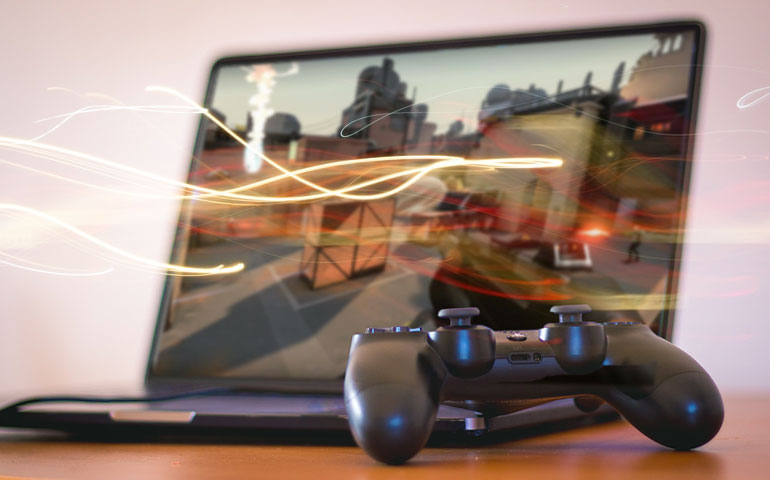
Stress and Shooting: My Experiences with Stress in Competitive Gaming
At ten years old, I had my first stress-induced migraine. I was the leader of a group project and had five people looking to me for instruction, two of them being special needs students. I was not capable of handling that much responsibility, so my body’s reaction to it was a migraine. Everything around me made it worse, the bright lights of my computer screen, the sounds of people talking around me, and the dull ringing in my ear. From this point forward, stress headaches became a bi-monthly occurrence. Whether it was the threat of a looming deadline, social issues, or my own anxiety causing me to create a mountain out of a molehill, my stress expressed itself in a pounding headache that persisted for a couple of days.
Gaming has always been a part of my life; my family has always been into games and it encouraged me to play games with others. My father introduced me and my older brothers to gaming. We played Kirby and Mario as a family and I would spend hours watching my older brother play. Gaming was an escape from my problems, it let me express myself in ways words could not, and it helped me reduce my stress. This solved my issues for the most part, until I took up competitive gaming. “VALORANT” is Riot Games’ competitive shooter, where the objective is to plant or defuse a bomb.
I have no shooter experience and during a game, I made a mistake that led my team, good friends of mine, to lose. When you die in VALORANT, you spectate your ally, and if everyone else is dead then all eyes are on you. The game is information based; you tell your team what you see, if you hit them, and where the enemies are. It also requires both good aim and good decision making, and although my aim is not bad, I do poorly under pressure. I once made a mistake when I told my team the wrong information, and we were all shot and killed by someone coming from our flank.
My palms were sweaty, my eyes became glossed over and blurry, and I was unable to speak. My brain banged against my skull and my stress took over. Gaming, my outlet for stress, had now become the catalyst for more stress. My stress came from my fear of failure and disappointment.
Competitive gaming unlocked a different side of my stress; instead of being the peaceful stress-reliever, it became the problem. I was putting so much pressure on myself that I was unable to have fun. I began to dread when my friends asked to play.
But why was I feeling stressed?
After the match, I talked to my friends about how I was sorry for my mistake and I began to understand the origin of my stress. I didn’t want to disappoint them. If they all had to watch my gameplay, then they would learn how truly bad I am at this. But that was okay. I’m new, I’m not going to be a professional the first time I pick up a gun. I am allowed to be bad. My work ethic is the only thing that can be judged.
If I put in the hours, watch professionals, practice my aim, and ask my friends for help, I will get better, it’s inevitable. If I made it a big deal in my head, then I’d overreact and become crippled by my stress. But if I grounded myself and kept my breathing in check, I could become someone dependable and capable of being an anchor for my team.
Stress is manageable and by isolating and discovering the origin of it, you can take steps to reduce it in the future. Talking to someone helps you get a sense of scale and understand if you are overreacting—communicating your feelings to your friends and family is a good way to solve your issues. My main takeaway from this experience is that I can control my reactions and I can choose to keep calm. I can’t live in my own head, there’s a whole world out there to experience.
Now when I queue up, I look for things I can work on every game. If I don’t stagnate, every game is an improvement and that’s a win in my books.



